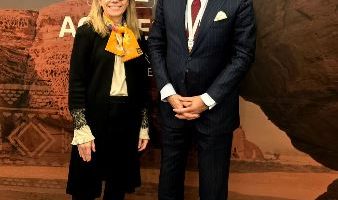PIAF wants serious steps to win investors’ confidence as FDI declining

DNA
LAHORE, SEPT 4 – Raising grave concern over the falling trend of foreign direct investment the Pakistan Industrial and Traders Associations Front (PIAF) has said that the FDI has declined to $114 million in July 2020, indicating that the government has failed to win the confidence of foreign investors in the national economy due to continued rupee deprecation and uncertainty.
The FDI is over 34 percent lower versus $174.8 million received in the month of June 2020. The number, however, surged over 60% against $72 million recorded a year ago in July 2019, which is due to massively low FDI in July 2019.
PIAF Chairman Mian Nauman Kabir, in a joint statement with Senior Vice Chairman Nasir Hameed and Vice Chairman Javed Siddiqi, observed that it is good that the FDI is higher on a year-on-year basis, but still lower compared to the average of $250-300 million during the pre-Covid-19 period. Pakistan has reopened its economy from the lockdown. Majority of the sectors in manufacturing and almost entire agriculture sector are operational now.
Mian Nauman Kabir said that foreign direct investment figures of the previous year reflected the same poor scenario, which plunged to a nine-month low at $73.4 million in July 2019, the first month of the current fiscal year 2019-20, according to the State Bank of Pakistan (SBP). The FDI was 59% lower than the $178.9 million received by different sectors of the economy, particularly construction and power, in the same month of previous fiscal year. The FDI had dropped to half at $1.66 billion in the last fiscal year compared to investment of $3.47 billion in FY18.
The PIAF Chairman said that Pakistan has succeeded to improve its balance of payments with record remittances in FY20 while the FDI witnessed 88% growth last year. China has been the leading investor in Pakistan for few years and was a major contributor to the increase in the size of FDI in 2019-20. However, the new fiscal FY21 may drag down the inflows from elsewhere due to slowdown of economies in the developed countries, he warned.
Senior Vice Chairman Nasir Hameed said that Pakistan has remained a potential market for foreign investors, who still have plans to make fresh investment in the country, but they have continued to wait for the return of economic stability. He highlighted uncertainty in the rupee-dollar parity as one of the major concerns of foreign investors. He said that the central bank let the local currency depreciate by 47% to Rs168 against the US dollar during last two years.
Vice Chairman Javed Siddiqi said a slowdown in the economy had badly impacted business confidence. It is must for the authorities concerned to first create an enabling environment for the local businessmen desiring to make new investment. According to reports, China has remained the single largest investor in Pakistan over the last couple of years. It has been mainly investing in power projects under its flagship and multi-billion dollar China-Pakistan Economic Corridor projects. Malta appeared as the second largest investor with net FDI of $18.5 million during July 2020.
Related News

AJK PM visits ICCI
ISLAMABAD, FEB 9 /DNA/ – Prime Minister of Azad Jammu and Kashmir, Raja Faisal MumtazRead More

Pakistan, World Bank review progress on long-term development partnership
ISLAMABAD, FEB 8 /DNA/ – Federal Minister for Finance and Revenue, Senator Muhammad Aurangzeb, todayRead More


Comments are Closed